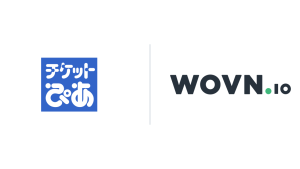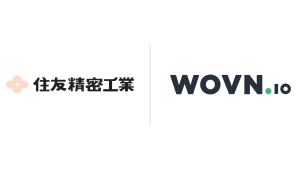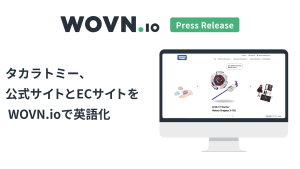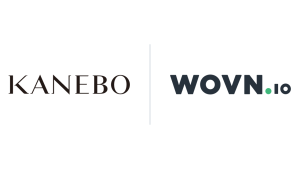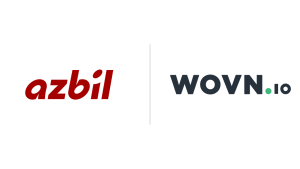In July, WOVN raised 3.6 billion yen in funding from MPower Partners Fund L.P. (“MPower”) and other investors. The press release can be found here. MPower is Japan’s first ESG-focused growth fund, established in May 2021. Miwa Seki, General Partner at MPower and translator of the million-copy bestseller “Factfulness,” explains what ESG is and their impression of WOVN from an ESG investment perspective.
- How MPower was founded
- About Ms. Miwa Seki
- About MPower and ESG investment
- About WOVN from an ESG perspective
- Promotion of ESG practices of Japanese companies
1. How MPower was founded
We want to help companies with potential to grow and take on the world
“First, please tell us how MPower came to be.”
Seki:
The ESG investment community is becoming more established in Europe, but ESG investment is not yet well established in the startup world. That’s when we got the desire to help startup companies with potential to expand globally, and founded MPower.
“What areas is MPower currently investing in and at what scale?”
Seki:
Our fund size is 16 billion yen, with a ticket size of 500 million to 1.5 billion yen. However, this is our first fund, and we are hoping to launch a second and a third fund and increase the amounts that we invest. In terms of investment areas, we invest in five areas relating to solving social issues: healthcare and wellness using technology, Fintech services that funnel money to where it is needed, fields that raise productivity (next-gen working and learning styles), circular economy platforms (such as the sharing economy), and environment-related fields.
“What do you look for when investing in a venture company?”
Seki:
Of course, a large market and high growth potential are a given, but we also want to see a company solving genuine social issues in a legitimate and competitive manner. Also, in the interest of company growth, we also place great importance on the management, leadership, and attitudes and abilities of all the teams.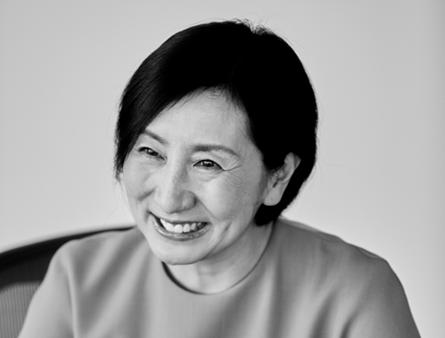
2. About Ms. Miwa Seki
Uncovering the hidden truth to discover great opportunities for investment
“If I may, I’d like to ask a few questions about yourself. How do you choose which books to translate? Is there any particular theme?
Seki:
I actually don’t actively choose the themes of the books I translate myself (laughs). The editors I work with read up on coming trends and technologies and, knowing my personality, try to pass me work relating to such themes.
“In a sense, your translations naturally gained a particular flavor and direction.”
Seki:
The editor who worked together on “Factfulness” loves books about tech entrepreneurs, and we’ve worked together on translating several books, including “Jony Ive: The Genius Behind Apple’s Greatest Products,” “Airbnb Story,” and “TED Talks.” It was not my personal flavor, but rather the editor’s taste in tech and new trends that naturally brought everything together.
I think my biggest breakthrough as a translator was the book “Zero to One: Notes on Startups, or How to Build the Future.”
“I’ve actually read that book five times myself.”
Seki:
I said earlier I don’t have my own themes, but this doesn’t mean I don’t have any at all. What I want most is to uncover the hidden truth. The hidden part is what’s important, and I really don’t feel compelled to bother with common knowledge. If 90% of the world affirms something is true but there is a truth to the contrary out there, I want to uncover and bring this truth to the light.
“Speaking of which, most people know you as the translator of the bestseller “Factfulness,” but don’t know much about you as a person.”
Seki:
I grew up in the Fukuoka countryside, in a lonesome town with an abandoned coal mine. This was a very precarious industry back then, so it wasn’t a very affluent town.
However, my parents read a lot of books, and I was fortunate to have access to Western literature on the bookshelves at home, which I think led me to become a translator.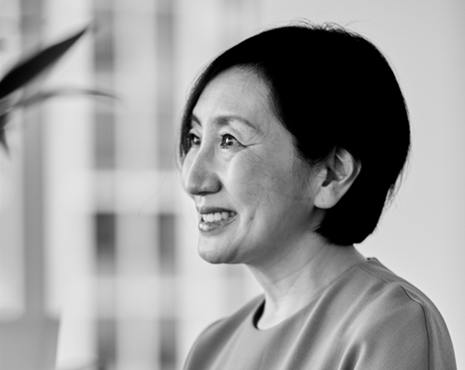
3. About MPower and ESG investment
Companies considerate of ESG are more like to achieve sustainable growth
“Can you please explain what ESG is again?”
Seki:
There are many similarities between ESG and SDGs, but ESG is a series of metrics relating to creating a sustainable society through company activities and investment. The three factors are: Environment, Social, and Governance. One of our criteria for investing in startups is that they are mindful of ESG and can put these metrics into practice.
“So, when investing in a company, you are looking not only at the profits, but also whether or not they are acting and providing services that enrich the world as a whole?”
Seki:
Yes. For example, companies that cause damage to the environment may eventually be snuffed out by new technologies that aren’t harmful to the environment.
Also, in terms of hiring, for example, ESG-conscious companies take better care of the physical and mental health of their employees and are more sensitive to work-life balance.
From the perspective of diversity, companies with a diverse workforce can create services and products that meet the needs of diverse customers, and therefore have greater business opportunities.
I think ESG investment is defined as investing in companies with the assumption that ESG contributes to a company’s sustainable growth, or simply just requiring ESG-mindfulness of a company.
It is also often said that ESG practices can help reduce corporate risk. In terms of corporate governance, having a diverse leadership team can reduce the risk of going in the wrong direction.
However, since we are not an impact fund, we also invest in areas that are seemingly unrelated to so-called social contribution. Our job is to increase corporate value by helping companies implement ESG practices into their growth strategies.
4. About WOVN from an ESG perspective
WOVN is a platform that can contribute to both diversity and inclusion
“From your point of view, what kind of ESG contributions do you feel WOVN can make?”
Seki:
Society as a whole is dealing with the issue of excessive manhours and inefficiency inherent to making a localized website. I think that improving productivity in this area will lead to an improvement in work styles and work-life balance.
I also think it’s a great platform for inclusion in that it provides non-native speakers of Japanese working in Japanese companies with access to complicated procedures and various information in other languages. It is also useful for local governments to disseminate information to non-native speakers of Japanese and for communication in times of disaster.
In addition, Japanese companies can’t always successfully communicate with overseas customers and employees. I think this platform contributes to the diversity and inclusion aspect by allowing a company to keep stakeholders, in addition to customers, employees, and foreign communities, up to date with changes on company philosophy and policies. And it’s not limited to Japanese companies. Any company with international dealings can tailor content to a minority language or culture, so I think there is great potential for global expansion.
5. Promotion of ESG practices of Japanese companies
ESG initiatives are vital for Japanese companies seeking to attract foreign investors and increase corporate value
“Lastly, how do you think Japanese companies’ ESG initiatives will evolve in the future?”
Seki:
In the world of listed stocks, foreign investors account for 60-70% of the transaction value. And they have various demands relating to governance and the environment. In Europe, there is an increasing number of investors who will not invest in a company unless it meets environmental standards. So, if it becomes apparent that good ESG practices increase a company’s corporate value and a lack thereof means no increase in value, I believe that Japanese companies will also become more proactive with ESG practices.
“Thank you very much for sharing your thoughts with us today!”



